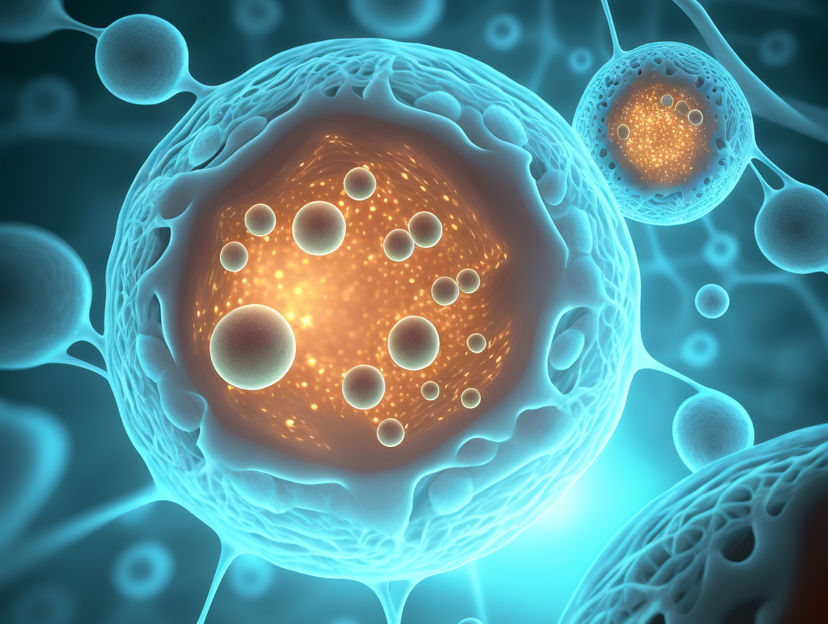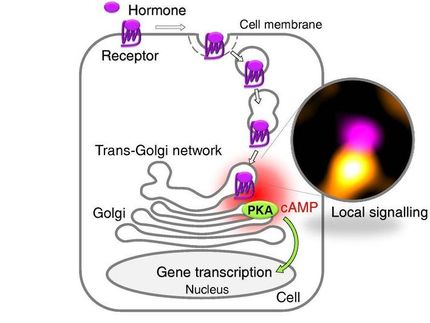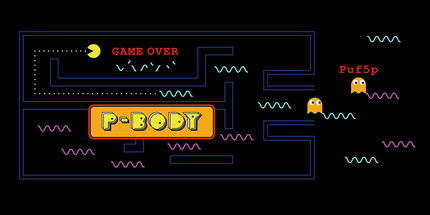Interrogating disease progression and cell processes with TIGER: in vivo and non-invasively
Peering into the cellular past: Technology records ribonucleic acids in individual living cells.
Advertisement
Do we simply ingest a diagnostic probiotic based on programmed ribonucleic acids to analyze the intestinal health from individual cells in the future? Researchers at the Helmholtz Institute for RNA-based Infection Research (HIRI) and the Julius-Maximilians-Universität (JMU) in Würzburg have developed a new technology they call TIGER. It allows complex processes in individual cells to be deciphered in vivo by recording past RNA transcripts. The findings were published in the journal Nature Biotechnology on 5 January 2023.

Symbolic image
Computer-generated image
Bacterial and viral infections can cause severe acute symptoms, but they can also have devastating long-term consequences such as triggering cancer. Consequently, scientists are looking for new approaches and technologies to better understand the course of diseases and predict the development of cells and tissues. They use increasingly precise methods to analyze the underlying processes in individual cells. One goal is to detect changes in gene activity, which in turn may indicate a pathological event.
Ribonucleic acids (RNAs) make an important contribution to this understanding. They can provide evidence of genetic activity as only active genes produce RNA copies (transcripts) in a process called transcription. However, RNA molecules expressed in transcription represent a current state only. Linking past cell events—for example, a bacterial infection—to present conditions and deducing future outcomes proves challenging.
"The identity and behavior of a cell not only depends on its current intracellular make-up and extracellular environment but also on its past states. We were looking for an efficient procedure at the single-cell level to peer into the past and connect it to the present,” Prof Chase Beisel explains. The head of the RNA Synthetic Biology Department at the Helmholtz Institute for RNA-based Infection Research (HIRI) in Würzburg is the lead author of the study, which has been published in the journal Nature Biotechnology. The institute is a site of the Braunschweig Helmholtz Centre for Infection Research (HZI) in cooperation with the Julius-Maximilians-Universität (JMU) of Würzburg, where Beisel also holds a professorship.
Peering into the cellular past
In their publication, the authors present a new technological approach that could significantly advance medical diagnostics in the future. Called TIGER, their method is a way to record the presence of specific RNAs in individual living cells.
"Through RNA recording, TIGER connects current cellular states with past transcriptional states," says first author Chunlei Jiao. TIGER can quantify relative gene expression, detect differences between individual nucleotides, record multiple transcripts simultaneously and read out single-cell phenomena.
According to Jiao, there are striking advantages to the method: "Previous research has only been able to approximate past cell states using huge amounts of data and computational prediction tools to measure asynchronous cells over time." The scientists involved in the study were able to record the transfer of antibiotic resistance between Escherichia coli cells as well as the invasion of host cells by Salmonella.
In the future, TIGER could be used to look into the transcription history of individual cells in a living organism and link it to the current status quo in order to decipher complex cellular reactions—in vivo and non-invasively. For example, one could imagine ingesting a TIGER probiotic to have the state of the digestive tract recorded and analyzed later on, the authors conclude.

















































